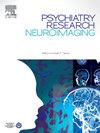提高精神分裂症诊断效率的EEGNet:基于γ带特征的简化识别模型
IF 2.1
4区 医学
Q3 CLINICAL NEUROLOGY
引用次数: 0
摘要
目的将脑电图(EEG)信号与深度学习技术相结合,建立一种客观、高效的精神分裂症诊断模型。在以往研究的基础上,选择γ波活动作为潜在的生物标志物,在显著降低模型复杂性和提高训练效率的同时,实现了较高的识别精度。方法针对静息状态脑电图记录中提取的γ波段特征,实现了简化特征工程优化的EEGNet架构。采用留一被试交叉验证(LOSOCV)对模型进行训练和评估,以确保将SCZ患者与健康对照(HC)区分开来的稳健性。结果γ波段特征模型对SCZ组和HC组的平均识别准确率分别为98.19%和97.24%。此外,该模型显著减少了训练时间,表明了一个高效的分类过程,更有利于在大数据集上进行训练。结论研究结果强调了γ波段特征在基于脑电图的SCZ诊断中的有效性,所提出的模型具有较高的准确性和提高的训练效率。这项研究强调了γ带聚焦脑电图分析作为SCZ客观诊断工具的潜在临床应用价值。本文章由计算机程序翻译,如有差异,请以英文原文为准。
Enhancing schizophrenia diagnosis efficiency with EEGNet: a simplified recognition model based on γ band features
Objective
This study aims to develop an objective and efficient diagnostic model for schizophrenia (SCZ) by integrating electroencephalogram (EEG) signals with deep learning techniques. Building on previous research, γ wave activity is selected as a potential biomarker to achieve high recognition accuracy while significantly reducing model complexity and enhancing training efficiency.
Methods
We implemented an EEGNet architecture optimized for simplified feature engineering, targeting γ band features extracted from resting-state EEG recordings. The model was trained and evaluated using Leave-One-Subject-Out Cross-Validation (LOSOCV) to ensure robustness in distinguishing SCZ patients from healthy controls (HC).
Results
The γ band feature model achieved average recognition accuracies of 98.19 % for the SCZ group and 97.24 % for the HC group. Additionally, the model significantly reduced training time, indicating an efficient classification process that is more conducive to training on large datasets.
Conclusion
The findings highlight the effectiveness of γ band features for EEG-based SCZ diagnostics, with the proposed model offering both high accuracy and improved training efficiency. This study underscores the potential clinical utility of γ band-focused EEG analysis as an objective diagnostic tool for SCZ.
求助全文
通过发布文献求助,成功后即可免费获取论文全文。
去求助
来源期刊
CiteScore
3.80
自引率
0.00%
发文量
86
审稿时长
22.5 weeks
期刊介绍:
The Neuroimaging section of Psychiatry Research publishes manuscripts on positron emission tomography, magnetic resonance imaging, computerized electroencephalographic topography, regional cerebral blood flow, computed tomography, magnetoencephalography, autoradiography, post-mortem regional analyses, and other imaging techniques. Reports concerning results in psychiatric disorders, dementias, and the effects of behaviorial tasks and pharmacological treatments are featured. We also invite manuscripts on the methods of obtaining images and computer processing of the images themselves. Selected case reports are also published.

 求助内容:
求助内容: 应助结果提醒方式:
应助结果提醒方式:


